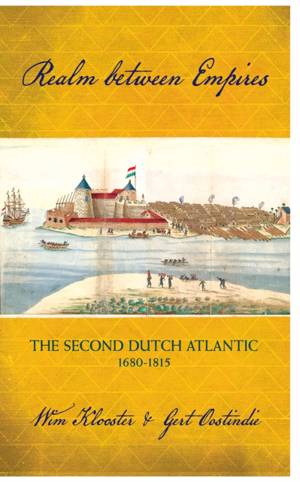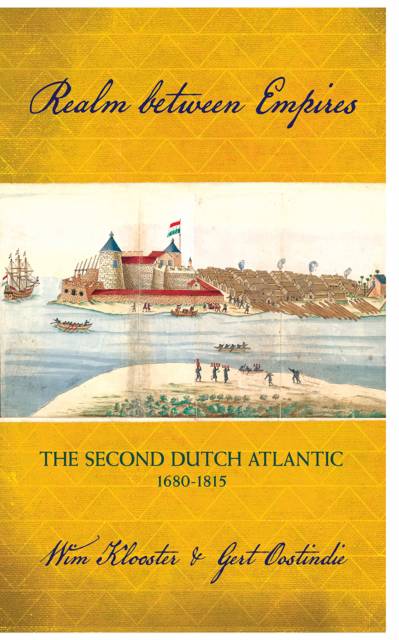
- Retrait gratuit dans votre magasin Club
- 7.000.000 titres dans notre catalogue
- Payer en toute sécurité
- Toujours un magasin près de chez vous
- Retrait gratuit dans votre magasin Club
- 7.000.0000 titres dans notre catalogue
- Payer en toute sécurité
- Toujours un magasin près de chez vous
Realm Between Empires
The Second Dutch Atlantic, 1680-1815
Wim Klooster, Gert OostindieDescription
Wim Klooster and Gert Oostindie present a fresh look at the Dutch Atlantic in the period following the imperial moment of the seventeenth century. This epoch (1680-1815), the authors argue, marked a distinct and significant era in which Dutch military power declined and Dutch colonies began to chart a more autonomous path.
The loss of Brazil and New Netherland were twin blows to Dutch imperial pretensions. Yet the Dutch Atlantic hardly faded into insignificance. Instead, the influence of the Dutch remained, as they were increasingly drawn into the imperial systems of Britain, Spain, and France. In their synthetic and comparative history, Klooster and Oostindie reveal the fragmented identity and interconnectedness of the Dutch in three Atlantic theaters: West Africa, Guiana, and the insular Caribbean. They show that the colonies and trading posts were heterogeneous in their governance, religious profiles, and ethnic compositions and were marked by creolization. Even as colonial control weakened, the imprint of Dutch political, economic, and cultural authority would mark territories around the Atlantic for decades to come.
Realm between Empires is a powerful revisionist history of the eighteenth-century Atlantic world and provides a much-needed counterpoint to the more widely known British and French Atlantic histories.
Spécifications
Parties prenantes
- Auteur(s) :
- Editeur:
Contenu
- Nombre de pages :
- 348
- Langue:
- Anglais
Caractéristiques
- EAN:
- 9781501705267
- Date de parution :
- 15-05-18
- Format:
- Livre relié
- Format numérique:
- Genaaid
- Dimensions :
- 152 mm x 229 mm
- Poids :
- 662 g

Les avis
Nous publions uniquement les avis qui respectent les conditions requises. Consultez nos conditions pour les avis.






